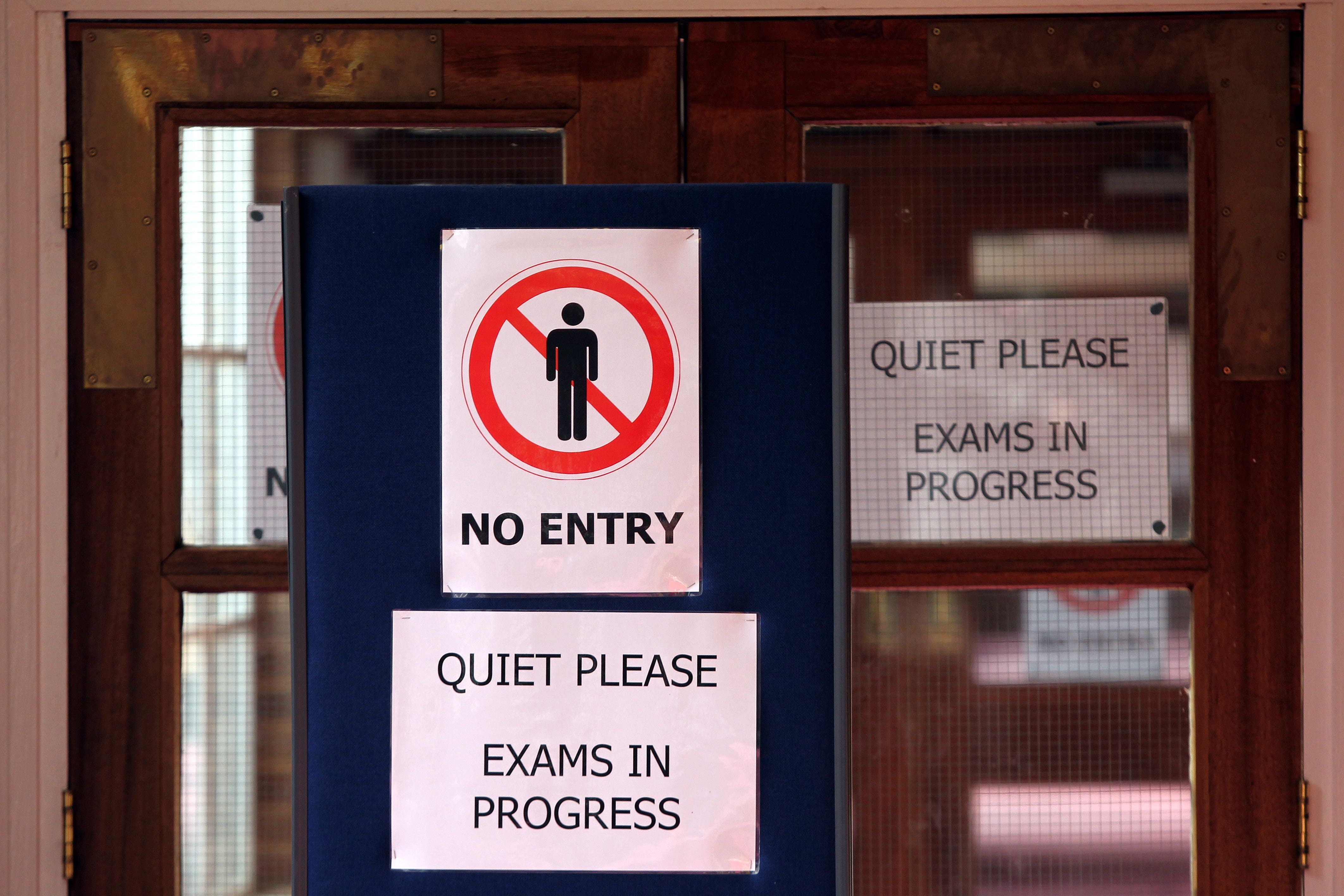Pupils should do coursework under exam conditions amid ChatGPT fears, heads told
The examined approach is ‘more important than ever because you’ve got that integrity of whose work it is’, Ofqual’s chief regulator said.

Your support helps us to tell the story
This election is still a dead heat, according to most polls. In a fight with such wafer-thin margins, we need reporters on the ground talking to the people Trump and Harris are courting. Your support allows us to keep sending journalists to the story.
The Independent is trusted by 27 million Americans from across the entire political spectrum every month. Unlike many other quality news outlets, we choose not to lock you out of our reporting and analysis with paywalls. But quality journalism must still be paid for.
Help us keep bring these critical stories to light. Your support makes all the difference.
Pupils should be asked to complete their coursework and essays under exam conditions in schools following the emergence of artificial intelligence systems, Ofqual’s chief regulator has suggested.
Jo Saxton, chief regulator of Ofqual, said the AI chatbot ChatGPT has made traditional examined conditions “more important than ever” so school and college leaders know whose work is being submitted.
When asked about ChatGPT at the annual conference of the Association of School and College Leaders (ASCL), Dr Saxton said: “We’re not seeing the end of desks and pens and paper anytime soon.”
ChatGPT is a form of generative AI which has come to prominence in recent months after a version of it was released to the public last year.
I think it's some of these innovations, like ChatGPT, which reinforce the importance of the examined arrangements that have stood the test of time
It can respond to questions in a human-like manner and understand the context of follow-up queries much like in human conversations, as well as being able to compose essays if asked – sparking fears it could be used by students to complete assignments.
Speaking to school and college leaders on Friday, Dr Saxton said: “If I was running a centre now, I wouldn’t be asking for the pieces of coursework or the essays that contribute to the grade to be done at home or in school holidays, I’d be doing them in invigilated conditions in my centre.
“So I think oddly that innovation means that the examined approach is more important than ever because you’ve got that integrity of whose work it is.”
Her comments come after the International Baccalaureate (IB) qualification body said it would not ban children from using ChatGPT in essays as long as they credit it and do not try to pass it off as their own.
Speaking at the union’s annual conference in Birmingham, Dr Saxton said: “First of all, we have got a formal programme of work, we have got a whole team working on technology in assessment. But I must caveat it with we’re not seeing the end of desks and pens and paper anytime soon.
“Students are for the foreseeable future still going to need to be able to evidence through writing what they know, understand and can do.
“And funnily enough I think it’s some of these innovations, like ChatGPT, which reinforce the importance of the examined arrangements that have stood the test of time so well not just in this country, but in many others, because you know whose work it is.
“And that’s the thing that gives qualification currency beyond the exam board and beyond the school and college.”
Subscribe to Independent Premium to bookmark this article
Want to bookmark your favourite articles and stories to read or reference later? Start your Independent Premium subscription today.